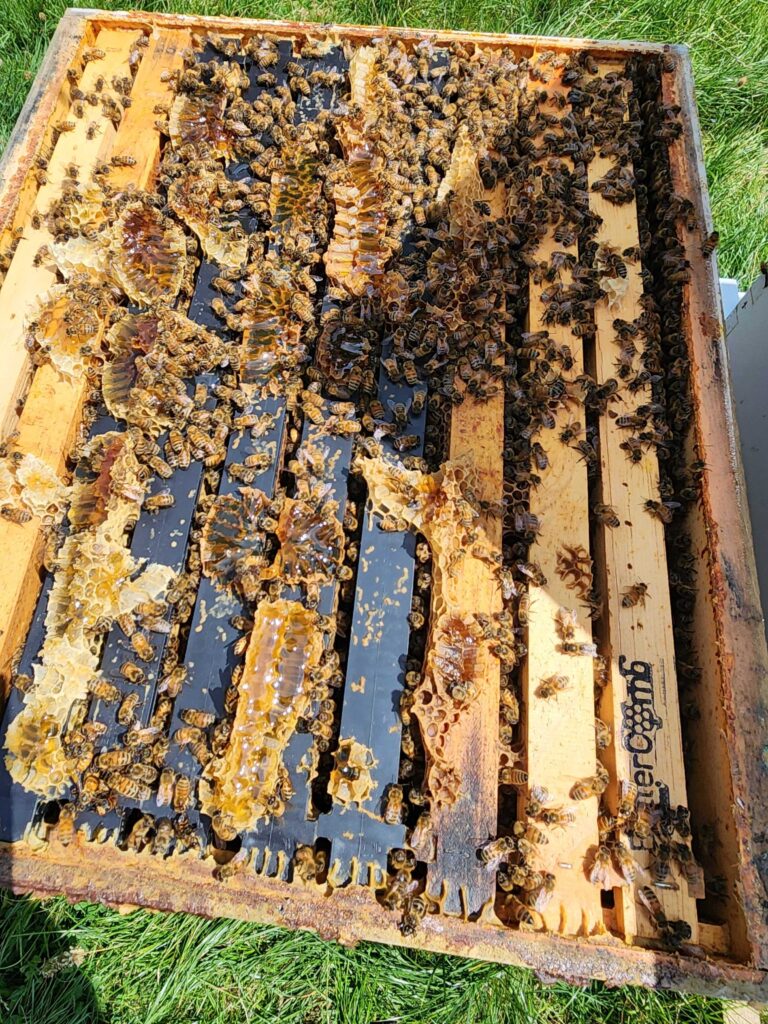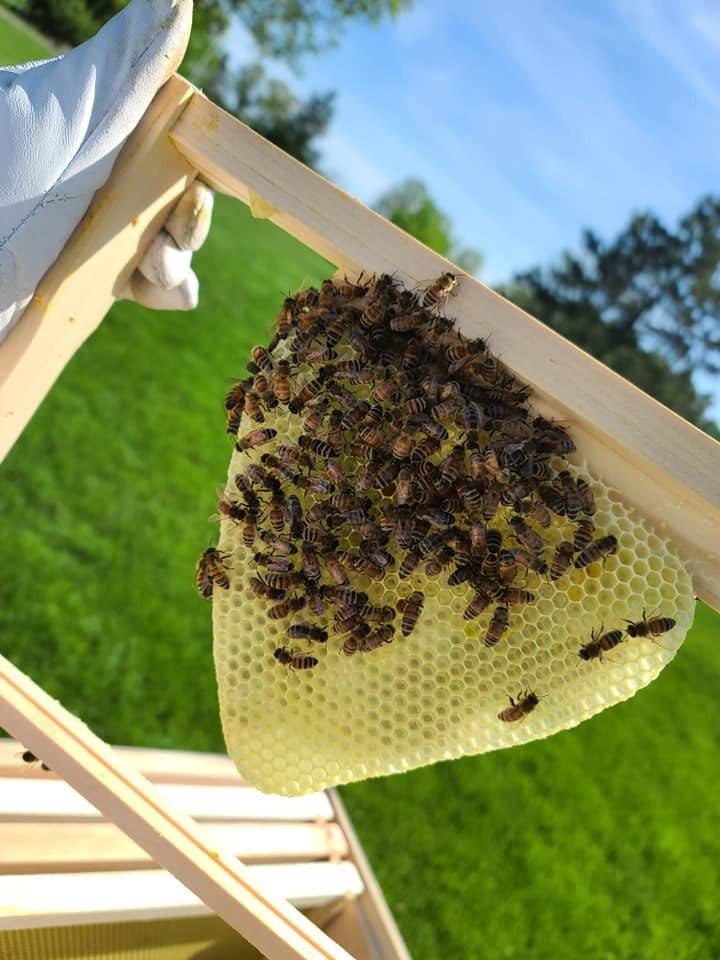
Introduction:
While honey and beeswax receive most of the attention in the fascinating world of beekeeping, there is another lesser-known but equally significant product derived from honey bees – propolis. Often referred to as “bee glue,” propolis is a natural compound made by honey bees from tree resin mixed with beeswax and saliva. With its antimicrobial, anti-inflammatory, and antioxidant properties, propolis has been revered for centuries for its many benefits to human health. It also offers practical uses in beekeeping, contributing to the overall health and hygiene of the hive. West River Exchange is dedicated to providing you with comprehensive knowledge about all aspects of honey bee products and promoting the incredible potential of propolis for both human health and beekeeping applications.
In this enlightening article, we will embark on a journey into the world of propolis. We will explore the composition and production of propolis within a honey bee colony, as well as its role in maintaining a healthy hive. We will delve into the numerous health benefits of propolis and its applications in natural remedies and everyday life. Additionally, we will discuss the practical uses of propolis in beekeeping and share tips on how to harvest and process propolis from your hives. By the end of this informative exploration, you will have a newfound appreciation for the wonders of propolis and be equipped with the knowledge on how to incorporate its benefits into your daily life, supported by West River Exchange’s high-quality beekeeping products and guides.
Let’s begin our exploration into the incredible world of propolis, the unsung hero of honey bee products, and uncover its untapped potential for promoting health and wellness in our lives.
The Composition and Production of Propolis in a Honey Bee Colony
To fully appreciate the benefits of propolis, it is essential to understand its unique composition and how honey bees produce it within their colonies:
- Propolis Ingredients: Propolis consists of a mixture of tree resin, beeswax, and bee saliva. Honey bees collect resin from different tree sources, such as poplars, conifers, and birches, and blend it with beeswax and enzymes from their saliva to create this unique substance.
- Role in the Hive: Propolis plays a vital role in maintaining a healthy and hygienic environment within the hive. Bees seal cracks and gaps within the hive with propolis to create a more stable structure, and they also apply a thin layer of propolis on the internal surfaces to inhibit the growth of harmful bacteria and fungi.
Health Benefits and Applications of Propolis
The incredible properties of propolis have caught the attention of both traditional and modern medicine, leading to various applications in healthcare and everyday life:
- Antimicrobial Properties: Propolis has demonstrated significant antimicrobial effects against a range of bacteria, fungi, and viruses. It can be used topically to treat minor skin infections, such as cuts and burns, or taken orally to support the immune system.
- Anti-inflammatory Effects: Propolis exhibits potent anti-inflammatory properties that can be helpful in managing conditions like arthritis, asthma, and allergies.
- Antioxidant Benefits: Rich in flavonoids and phenolic compounds, propolis possesses strong antioxidant properties, which can help protect the body against cellular damage caused by free radicals, supporting overall health and wellness.
- Oral Health: Propolis has been found to be effective in promoting oral health due to its antimicrobial and anti-inflammatory properties, making it a valuable ingredient in natural mouthwashes and toothpaste formulations.
Practical Uses of Propolis in Beekeeping
In addition to its numerous health applications, propolis also offers practical benefits for beekeepers, ensuring a healthy and productive hive:
- Disease Prevention: Propolis’ antimicrobial properties can help protect bee colonies from diseases and pathogens. Beekeepers can encourage propolis production by providing an environment that stimulates the collection of tree resins, such as planting resin-producing trees near their apiaries.
- Hive Maintenance: Beekeepers can utilize propolis to seal gaps and repair damages within the hive structure, creating a more stable and weather-resistant home for the colony.
- Harvesting Propolis: Propolis can be harvested from the hive in a variety of ways, such as using a propolis trap or scraping it from hive walls and frames during regular inspections. Once collected, propolis can be processed and used in various health products or to support the beekeeper’s health and well-being.
Incorporating Propolis into Your Daily Life
With its impressive range of health benefits, propolis can easily be incorporated into your daily routine:
- Propolis Supplements: Propolis is available in various forms, such as capsules, tablets, and tinctures, making it easy to add to your daily supplement regimen. Choose high-quality, reputable brands, and follow the recommended dosages.
- Skin Care Products: Propolis-infused creams, salves, and balms can be applied to the skin to treat minor infections, burns, or irritations or simply to moisturize and promote healthier skin.
- Oral Health Products: Utilize natural oral care products containing propolis, such as toothpaste or mouthwash, to improve your oral health and maintain good dental hygiene.
Propolis is an extraordinary gift from honey bees, boasting a multitude of health benefits and applications in both traditional medicine and beekeeping practices. By incorporating propolis into your daily life and supporting sustainable beekeeping methods, you contribute to a healthier environment and promote the well-being of both humans and honey bees. Rely on West River Exchange for high-quality honey bee supplies in Ohio, as well as advice and insights into the fascinating world of honey bees and their incredible products, such as propolis, and start enhancing your health and wellness today.

